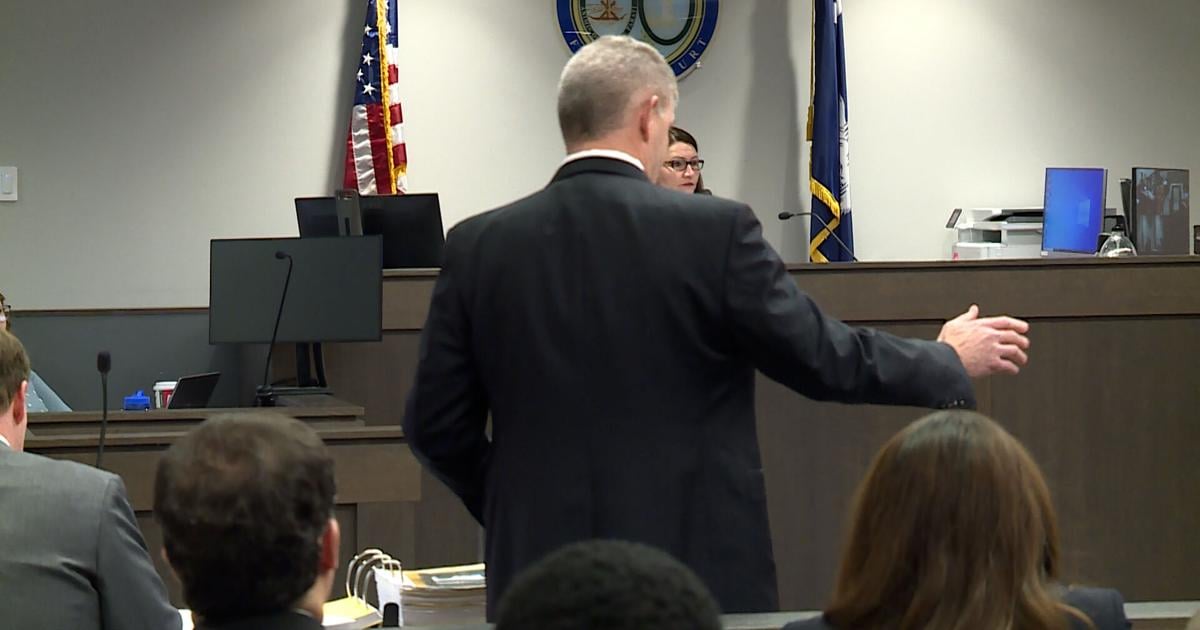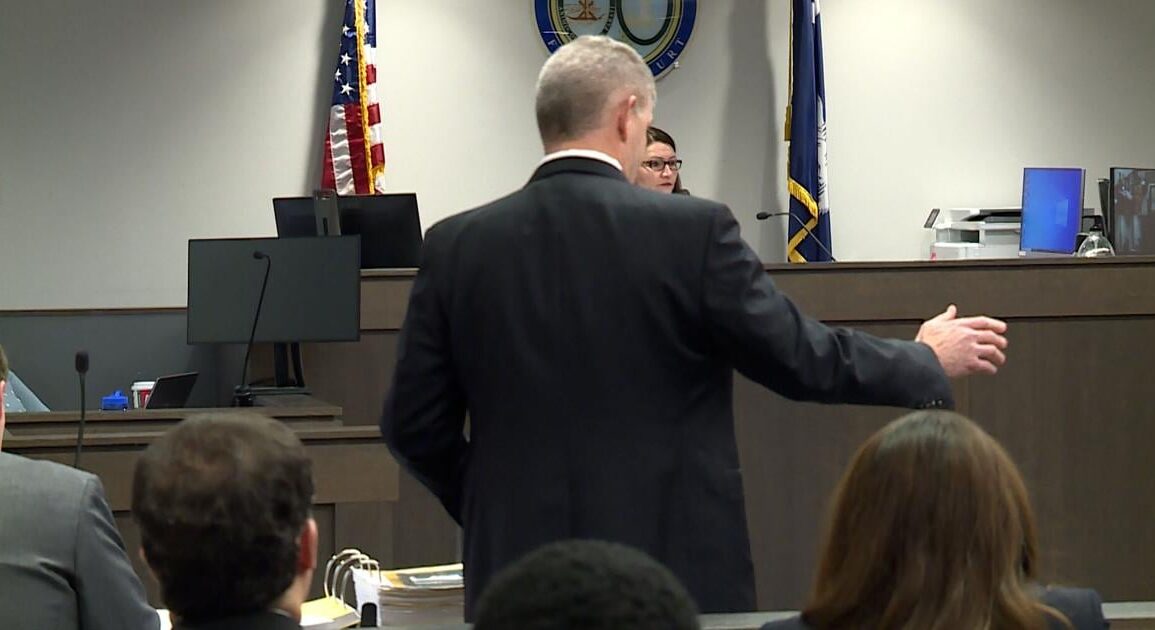
GREENVILLE — At 12 years old, the boy charged with fatally shooting a fellow classmate inside Greenville’s Tanglewood Middle School wasn’t responsible enough to drive a car, vote in an election or buy a pack of cigarettes.
But when he pulled the trigger, fled to a nearby home and asked the woman who answered a Ring doorbell to call his daddy, he became an adult in the eyes of 13th Circuit prosecutors. They plan to remove his case from the juvenile court system and try him for murder in general sessions where the difference in punishment can mean a lifetime.
If convicted in the March 2022 killing, he would join hundreds of other inmates in South Carolina who end up serving time in adult prison for crimes they committed as children.
A recent survey of the country’s state prison populations using data gathered in 2021 and 2022 found more than 6 percent of inmates in South Carolina prisons were convicted of crimes they committed as minors aged 17 or younger. Those roughly 1,140 inmates represented the third-highest rate in the country.
The stakes for him are high: A child convicted of murder in a juvenile court would be transferred to adult prison at 18 and remain incarcerated until they turn 22 and age out of the juvenile system, said University of South Carolina law professor Madalyn Wasilzcuk, who directs the school’s youth defender clinic.
If convicted as an adult, he would be moved to prison at 17 and potentially serve a life sentence. The boy’s attorney, Ryan Beasley, pointed out that his client’s formative years would be spent surrounded by adult inmates convicted of violent crimes, damaging the child’s chances of rehabilitation.
“And he’s gonna be exposed to a bunch of things he’s never been exposed to,” Beasley said. “I don’t see how that would ever rehabilitate anybody.”
Until 2019, 17-year-olds were treated as adults in the state’s criminal justice system, but a law that went into effect that year raised the age to 18. Still, even children who first come into the juvenile justice system on certain charges can be waived to general sessions court where they will be tried as adults.
While prosecutors have to convince a family court judge to send the case to general sessions based on a handful factors laid out by the U.S. Supreme Court, there’s no minimum age requirement preventing judges and prosecutors from sending children to stand trial as adults on murder charges.
Duffie Stone, the 14th Circuit solicitor in the Lowcountry and president of the National Prosecutor’s Association, said sending children to general sessions isn’t a routine occurrence in his office. Instead, that motion is reserved for youth who “are acting like adults and committing adult crimes.”
“I am seeing 15-year-olds with some heavy artillery,” Stone said. “And they are causing a lot of damage, in almost every case, the death of somebody.”
The S.C. Juvenile Justice Reform Act, an omnibus bill still pending in the state Senate, includes a proposal to change those rules.
The bipartisan bill, sponsored by state Sen. Katrina Shealy, R-Lexington, and Gerald Malloy, D-Hartsville, would raise to 15 or 16 the minimum age at which children charged with murder could stand trial as adults. The bill is still in committee.
“If you commit a crime like that, and you’re 12 years old, and you murder somebody, I don’t think people are that inherently mean. There has to be some underlying issues,” said Shealy, speaking generally about the Tanglewood case. “Who knows what was going on in his mind. But at 12, your brain isn’t fully formed anyway.”
There’s no publicly available statewide data showing how often children are tried as adults in South Carolina. But a study released in May by the non-profit Human Rights for Kids found that 6.12% of South Carolina prison inmates were locked up for offenses they committed at age 17 or younger.
The state trailed only Louisiana (7.2%) and Wisconsin (7.13%). Those proportions are double the national average of 3.1%. Nationwide, there are more than 32,000 people in state prisons across the United States who are locked up for offenses committed as youth.
The study covers populations across most state prison systems, but it only represents a snapshot in time for each of the 45 states that provided usable data, which was obtained from mid-2021 into 2022.
“Some states were more shocking than others,” said Human Rights for Kids founder and attorney James Dold. “South Carolina was certainly among them, particularly when you started to look at the racial breakdowns and racial disparities that existed within the systems.”
Almost all of the South Carolina inmates in the study are male, 79% of them are Black and their average sentence length is 18.7 years — which is longer than any of the prisoners had been alive at the time they committed their crime.
Beasley’s client, if convicted in adult court, would check all of those boxes.
Kids who enter the criminal justice system often come from already violent backgrounds, Dold said.
“If you care about child victims of human trafficking, if you care about kids who’ve been victims of physical and sexual violence, if you care about kids who’ve been victims of neglect, you have to care about the kids in our criminal justice system,” he said. “Because that’s where they end up when every other system fails them.”
Beasley said his client had suffered trauma at a young age that might have caused some problems with brain development. He declined to elaborate, citing family court confidentiality. He had been threatened at school, got beat up and was worried about getting hurt again, Beasley said.
The boy had told his parents about the situation, and they in turn told school administration. But the problems didn’t stop, so the middle school student found a gun hidden in his father’s room and took it to school, Beasley said.
He has been in juvenile detention ever since. The Post and Courier previously reported the judge in the case said there were signs the boy is impulsive and has trouble controlling his anger.
“He’s a product of his environment,” Beasley explained. “He’s growing up around kids that are in gangs and they’re threatening him and saying, ‘If you’re not in our gang, we’re gonna take you out.’ He doesn’t know; his back’s against the wall. But does he need to go to jail as an adult? Hell no. That’s just crazy.”
The solicitor’s office and the attorney for the family of the victim, 12-year-old Jamari Jackson, disagree.
“Nothing that defense counsel says about Jamari will ever provide ‘motivation/justification’ for the actions of his client,” Margie Pizarro, the Jackson family attorney, said in an email. “For him to besmirch the character of a dead child is so disheartening.”
Pizarro pointed out the evidence in the case shows the boy waited in the hallway for Jackson before shooting him. Beasley and prosecutors disagree on the boy’s intent, however; prosecutors say Beasley’s client killed Jackson on purpose, while Beasley said the boy only wanted to scare his classmate and killed him by mistake.
Pizarro said Jackson’s family believes “that taking the life of another in this manner is an adult decision and one that, based on the facts, was thought out, planned and executed. If you’re old enough to plan to carry out a murder, you’re old enough to face the consequences for murder in the state of South Carolina.”
While South Carolina is an outlier within the U.S. for the proportion of inmates serving time for youthful crime, the United States’ treatment of juveniles in the justice system is itself an outlier when compared to the rest of the developed world. The reasons can be traced back three decades.
In 1992, the U.S. Senate ratified the United Nations’ International Covenant on Civil and Political Rights. But the Senate included a vague caveat: It reserved the country’s right to treat juveniles like adults in “exceptional circumstances,” without defining the term.
Those circumstances turned into an “expansive gap,” Dold said.
In the mid-to-late 1990s, politicians began promoting the “superpredator” myth, dehumanizing young, predominantly Black youth with animalistic imagery.
They sold the story that urban kids were roaming cities and committing violent crime without remorse or hope for rehabilitation. Dold said lawmakers responded by making it easier to transfer kids into the criminal justice system and hand them long sentences.
But children’s brains aren’t fully developed, and they don’t fully develop until their mid-20s. That can lead to impulsive behavior without thought of long-term consequence. Because of this, the Supreme Court has made capital punishment and life without parole unconstitutional for children.
“So the way a kid’s brain develops, sometimes we analogize it to a race car with no brakes,” said Wasilzcuk, the law professor. “Before they can sort of think things through, they act. They’re also more likely to perceive a threat where none exists and therefore also sometimes over-react in self defense.”
For felonies that can carry a maximum sentence of 15 years or more, known as Class A, B, C and D felonies, children as young as 14 can be waived up to general sessions and tried as adults if a family court judge agrees to do so after an investigation and a hearing.
It’s not an automatic process. The court still weighs a number of factors — including the child’s maturity, the nature of the offense, the child’s criminal history and likelihood of rehabilitation, among others — to determine whether it’s appropriate for the child to stand trial as an adult.
The Juvenile Justice Reform Act could change that. In addition to raising the bar for trying children as adults in murder cases, it would raise to 16 years old the age at which they could be tried as an adult for major felonies.
And for those 17 or younger who are convicted of murder in general sessions, it would allow a judge to sentence them to less than the mandatory minimum of 30 years.
Solicitor Stone pointed out that keeping children charged with violent crimes within the juvenile system would mean they will inevitably get a lighter sentence if convicted, due to the the cutoff age of 22. Hypothetically, he said, a teen with prior shooting convictions who is convicted of murder would only serve a handful of years behind bars before being released.
“You’re talking about a very small sentence for a very serious crime,” Stone added. “If I’ve got a 15-year-old that has committed adult crime and committed adult-level harm, then I’m going to ask for that waiver process if that’s the right thing to do.”
Wasilczuk argued that the proposal would actually make South Carolina a safer state, citing the difficulty in rehabilitating children who are sent to prison at a young age.
“A lot of evidence shows that children who are prosecuted in the adult system for equal crimes are more likely to recidivate in the future,” the law professor said. “And so actually moving children into the adult system diminishes our public safety rather than making us safer.”
Beasley and the solicitor’s office anticipate they will go to court in December to argue whether the Tanglewood shooter be tried in juvenile court or general sessions.
“He’s a product of his environment and it’s just a sad situation,” Beasley said. “But there’s a chance of him being rehabilitated, and it doesn’t need to be with a bunch of adults in a jail. That just doesn’t make any sense.”
This post was originally published on this site be sure to check out more of their content.







